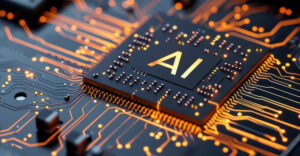
Computer manufacturer HP has unveiled a new ultra-slim business desktop, the Compaq dc7800 desktop PC. The energy-efficient desktop features a 16 GB solid-state hard drive (SSD) and also meets the requirements of the Electronic Product Environmental Assessment Tool (EPEAT) Gold registry, HP said.
The introductions of the dc7800 and the Compaq dc5800, another desktop unveiled Wednesday, come just two weeks after HP pledged to reduce the energy consumption of its desktop and notebook computers by 25 percent by 2010.
“HP’s ongoing efforts to design for the environment have spanned decades,” said Alan Reed, vice president and general manager of HP’s personal systems group. “HP leverages this expertise to continually develop smart ideas for its PC product lines that not only help business customers be more productive, but also reduce operating costs and their effect on the environment.”
“Right now there is a huge focus on saving energy, and the EPEAT validation helps differentiate products that do a better job of that,” said Rob Enderle, principal analyst at Enderle Group. “It is a way for the buyer to make sure they are getting something that meets a set of agreed upon green standards.”
“Part of HP’s strategy is to both release products that are environmentally leading and use environmentally leading internal policies to help their own bottom line. This ability to demonstrate the economic benefits of being green has been a powerful help to the green effort and EPEAT helps them make this point,” Enderle told TechNewsWorld.
The Greening of the Enterprise
Forrester Research’s October 2007 Global Green IT Online Survey of 130 IT procurement and operations professionals found that 38 percent have included environmental criteria in their evaluation and selection of IT purchases. The figure represents an increase from the 25 percent who answered affirmatively just six months earlier, said Benjamin Gray, a Forrester analyst.
“Green IT is going to be a big movement going forward, and the vendors are working hard to meet their customers’ expectations,” he told TechNewsWorld.
Measuring 2.60 inches by 9.90 by 10 inches, the dc7800 is 46 percent smaller than previous models. The system also includes a bevy of energy-efficient features such as Intel Core2Duo processors with optional Intel vPro technology and Verdiem’s Surveyor network power management software agent, which helps measure, manage and reduce power consumption on PCs and monitors.
The addition of Sandisk’s 16 GB solid-state drive (SSD) further increases the dc7800’s energy efficiency because solid state drives do not have moving parts and therefore use less power.
“Solid state drives use less power, and that means you don’t need fans and it’s cooler,” Jeffrey Janukowicz, an IDC analyst, told TechNewsWorld.
The lack of moving parts also means that SSDs are far more reliable than traditional hard drives. For businesses, that means machines containing SSDs are likely to have a longer lifecycles than other PCs and will not need the same level of maintenance from IT personnel.
“Another reason people are looking at solid-state drives is the reliability aspect. Solid-state drives do not have moving parts and aren’t subject to jostling and gyrating and crashes that can damage data. The inherent reliability is much greater,” Janukowicz said.
“There’s less down time for an employee trying to do his job. Solid-state drives’ enhanced reliability aspects make that downtime employees have a little lower,” he added.
Is 16 Gigabytes Enough?
The dc78000’s scant 16 GB of storage puts the machine out of reach for some enterprises, but makes it a good choice for enterprises that run applications on a network or use only a very limited number of programs.
“[An SSD] pulls its data over the network and only uses the drive for the [operating system] and core applications. This makes it blindingly fast, ensures the data is more secure, and keeps the cost affordable — flash drives remain prohibitively expensive. You can do this with desktop systems more reliably than laptops because they are always networked,” Enderle said.
“Solid state drives offer a lot of advantages compared to a hard drive, primarily around increased performance. So you’ll see much faster loading of applications, booting of the system and things like that, which people find advantageous. Sixteen gigs does not sound like much, and to most people it is not,” Janukowicz explained.
“Hotels and financial institutions would benefit from this type of system,” he continued.
Who’s Buying?
Although HP’s announcement shows that it will offer solid state drives as a premium option going forward, for the vast majority of businesses it is too early to buy the technology due to cost concerns alone, said Forrester’s Gray.
“Some notable exceptions will likely include armed services, which depends on critical uptime in the harshest of environments, and the most mobile of information workers, who prefer lighter systems that can squeeze out an extra hour of battery life,” he told TechNewsWorld.
In a company with centralized servers and a fast network, there is no real need for a lot of local storage on a desktop system anymore. It is not only a waste — it can also be a security exposure. Overall, businesses will benefit from the speed, power efficiency, low noise, reliability and security of SSDs, explained Enderle.
“This is probably where machines should have been going for awhile, and would have if it weren’t for the fact that magnetic hard drives are really cheap. The offset that keeps the market from running to them is they are comparatively expensive, but if you can go to a smaller capacity you can make them very competitive and allow the advantages to shine,” he said.




















































